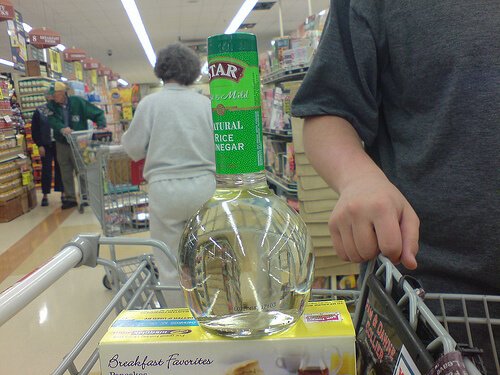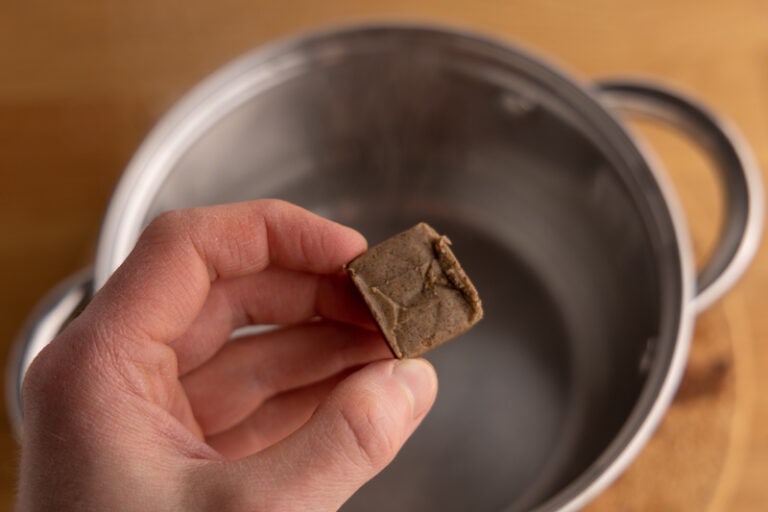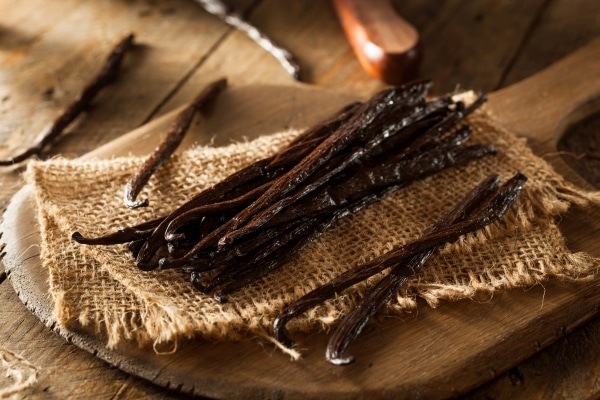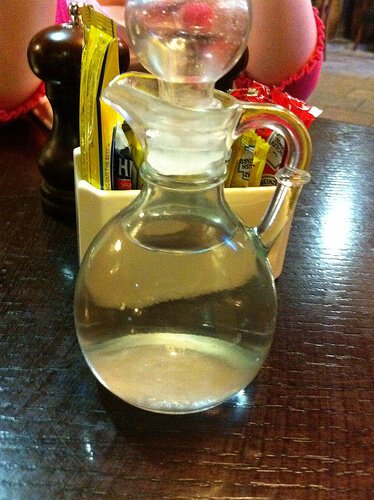Does Mustard Go Bad?
So you’re warming up some sausages and notice that your mustard is months past the date on the label. No wonder since it’s been there for longer than you can remember. Yup, you’re not the only person who stores a half-open jar of mustard for months on end. But the question that brought you here is: does mustard go bad?
Even though mustard is a popular condiment, there are many questions about it online. Some people wonder whether it can possibly spoil, others aren’t sure if it needs refrigerating after opening.
And there’s always the question of how to tell if your mustard has gone bad and should be discarded.
In this article, we go through all of these issues, so if you want to learn a bit about mustard, read on.
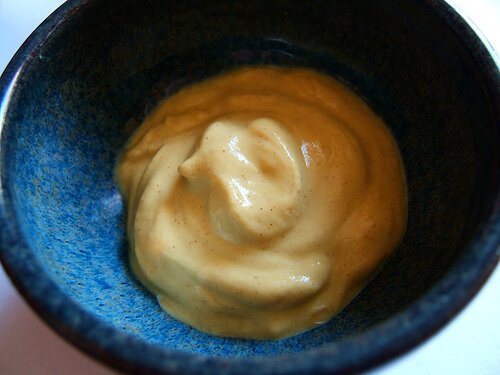
How To Store Mustard
You should store mustard similarly to how you store mayo. That means it should sit in a cool and dark place, away from sources of heat and sunlight. You can store an unopened jar or bottle at room temperature, which means a pantry or a kitchen cabinet are the top choices.
Once you open the mustard, there are a few things to remember.
First off, keep it always sealed tightly when not in use. If the jar isn’t sealed well, the mustard might dry out.
If your mustard dries out, add a tablespoon or two of vinegar and give it a stir. It should be usable again.
Second, always use clean utensils when scooping the mustard. I know that dipping the sausage in mustard is great, but save that for when you’re cleaning up the jar. Scooping the condiment with utensils already used for other purposes will likely transfer bacteria and contaminants to the mustard. And that might result in it going bad prematurely.
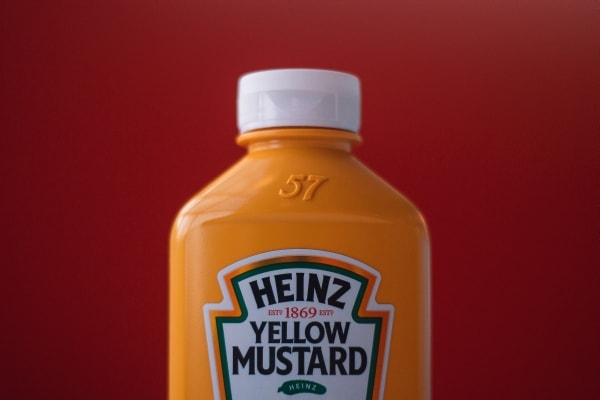
Now to the place of storage: does open mustard need to be refrigerated? The best answer I can come up with is: it depends.
If you plan on using the whole jar or bottle within a month or two, it’s okay to store it at room temperature. Otherwise, it’s best to keep it in the fridge, where it retains good quality for much longer.
Mustard is very similar to ketchup in that matter.
Related: Does ketchup go bad?
Last but not least, mustard, if stored for a long time, tends to separate. That’s normal, and it doesn’t mean the mustard is spoiled. To get it back to its original state you can stir it using a spoon or a butter knife.
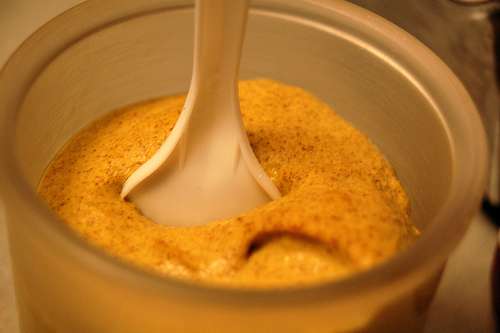
How Long Does Mustard Last
Pretty much all mustards come with a “best-by” date. That date informs you of how long the mustard should retain freshness. Of course, since mustard is a pretty acidic condiment, it will easily last for a few months past that date.
Generally speaking, mustard degrades in quality over time. It loses hotness and the texture doesn’t stay uniform and creamy for ages. That means that at a certain point it won’t be good enough to use anymore.
There are many types of mustard available. Mustards with a higher amount of acid, such as Dijon mustard, will last longer than milder varieties, like honey mustard.
As already mentioned in the storage section, where you store mustard after opening is an essential factor in how long the mustard stays fresh. The fridge is a much better environment than a cabinet in the kitchen so the mustard can sit there for much longer.
The difference is quite staggering. At room temperature, the mustard will keep its quality for about 1 to 2 months, while refrigerated it should stay in good shape for about a year.
One last thing when it comes to storing and shelf life of mustard. Many producers put storage guidelines on the label of their products. Often the label informs you to store the mustard in the fridge after opening, or for how long the product will stay fresh after opening. If such instructions are on the label, you should follow them carefully and use the advice in this article only as a backup.
| Pantry | Fridge | |
|---|---|---|
| Mustard (unopened) | Best by + 1 year | |
| Mustard (opened) | 1 – 2 months | 8 – 12 months |
Please note that the periods above are estimates and for the best quality only. Also, some mustards may retain quality for a longer or a shorter period, depending on the ingredients used. Always check the label of the product you’re using.

How To Tell If Mustard Is Bad?
Mustard can go bad, but that’s a quite rare occurrence. If you notice any signs of organic growth (like mold) inside the jar, toss it out. Same thing if the condiment developed an off odor.
If the mustard seems fine but is already past the best by date for like 2 or 3 years, it’s time to cut your losses and discard it, just to be safe. If anything other about the mustard feels off, throw it away as well. Better safe than sorry.
As mentioned above, mustard degrades in quality over time. That means it’s more probable that you will discard the condiment for quality purposes, not because it has spoiled. If there aren’t any signs of it going bad, give it a taste. If the flavor is good enough to use, feel free to continue using it. Otherwise, throw it out.
Mustard Shelf Life and Spoilage Summary
Thank you for reading this short guide on mustard. Let’s recap what we covered:
- Does mustard go bad? Mustard doesn’t easily go bad thanks to its acidity. If it sits sealed and in the fridge, it can last months without growing mold or going bad in any other way. The worst that’s likely to happen is that it’ll separate a bit, which you can fix by giving it a stir.
- Does mustard need to be refrigerated? Mustard usually doesn’t require refrigeration after opening, but it loses quality much quicker at room temperature than it does in the fridge. That’s why diners can get away with letting it sit on tables, and you should probably keep yours in the fridge.
- How long does mustard last? Mustard comes with a shelf life of about a year, and easily lasts past the printed date. Once you open it up, it can still last months if you store it in the fridge. If you leave it at room temperature, it’ll lose quality much faster and will likely be no good within about 2 months of opening.
Rotten Records: Share Your Snap!
Caught some food past its prime? Upload your photo to “Rotten Records” and help others spot the signs of spoilage. Every image makes our food community safer and more informed!
![Does Mayonnaise Need to Be Refrigerated? [+5 Storage Tips]](https://www.doesitgobad.com/wp-content/uploads/mayonnaise-storage-practices-infographic-768x512.png)
